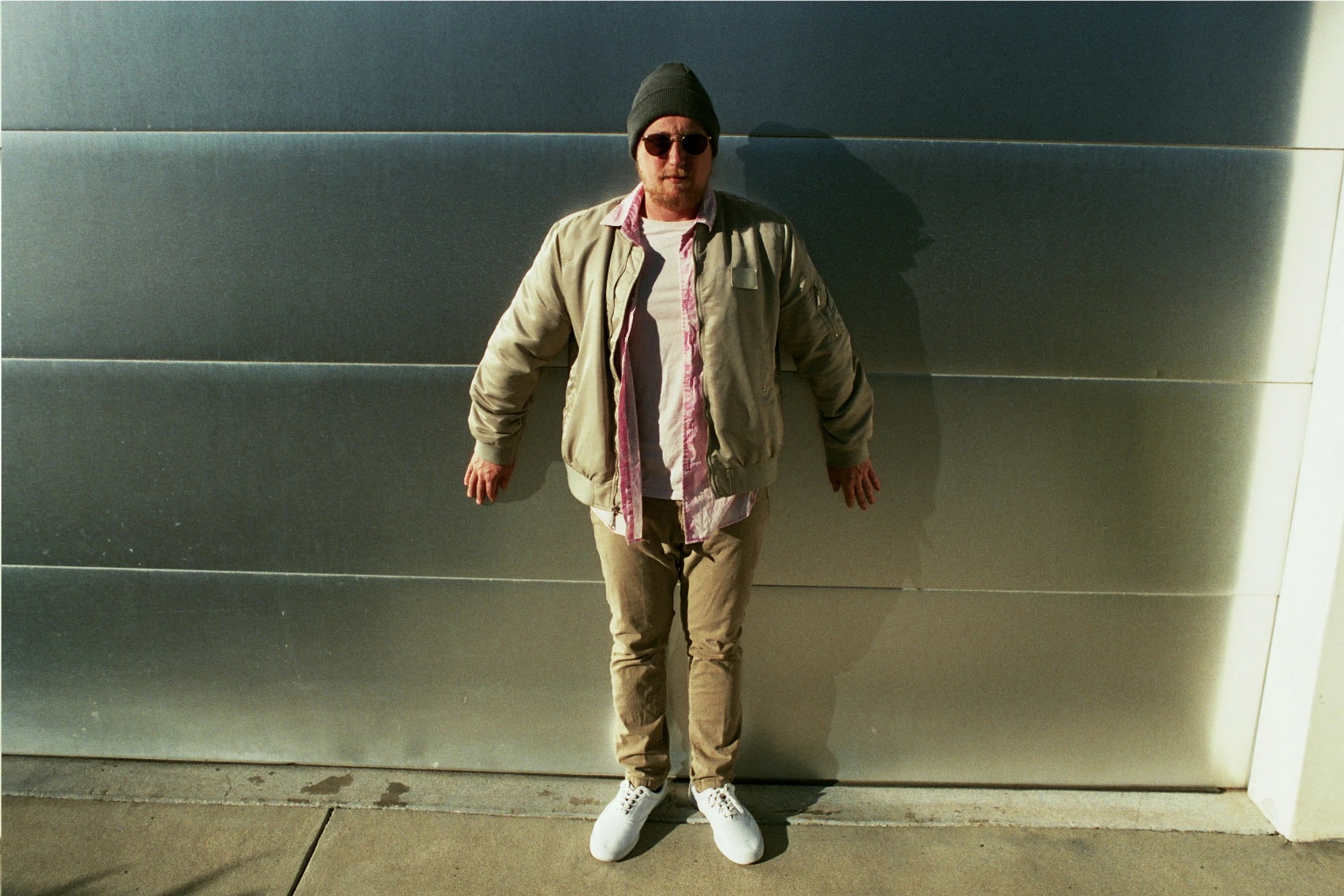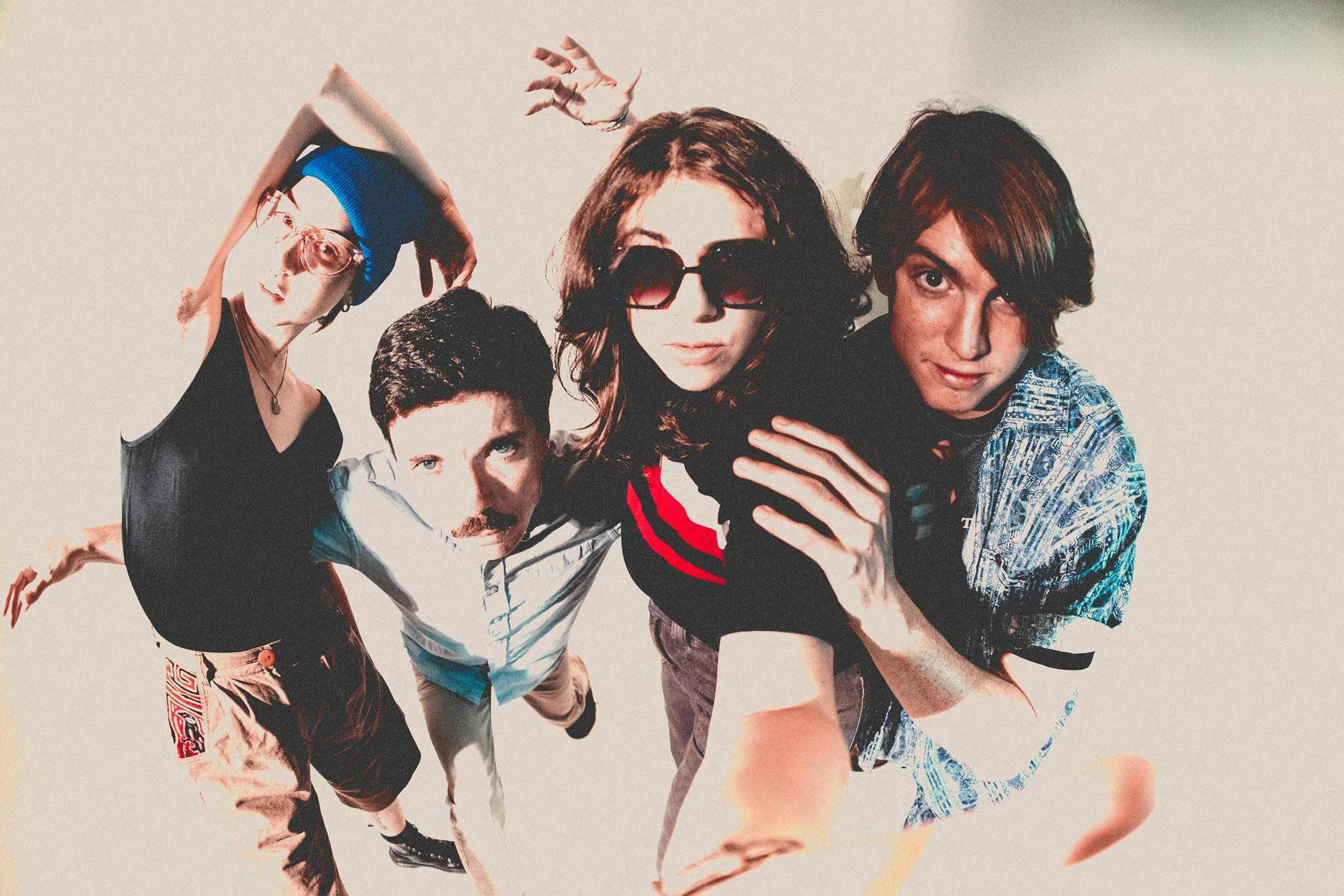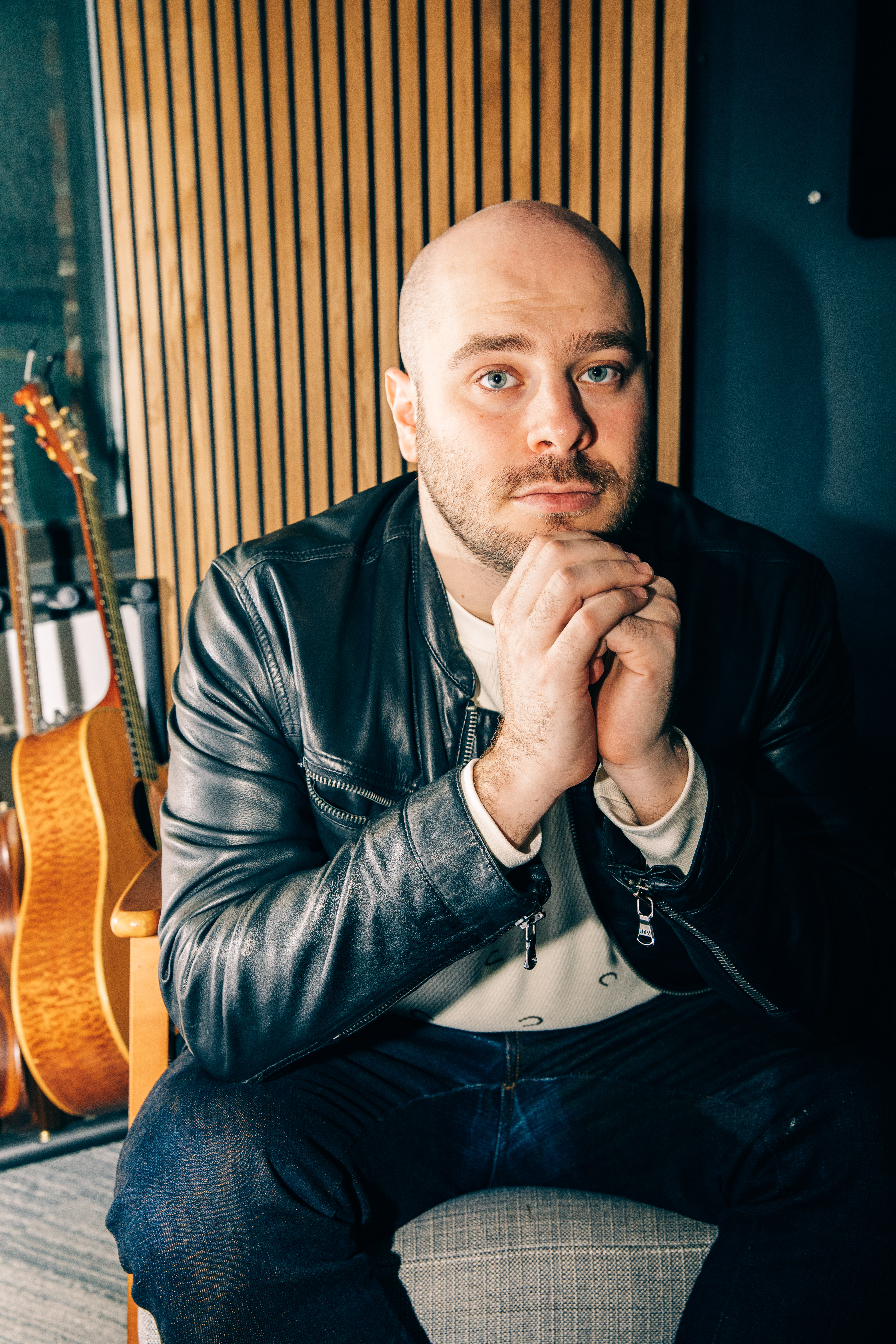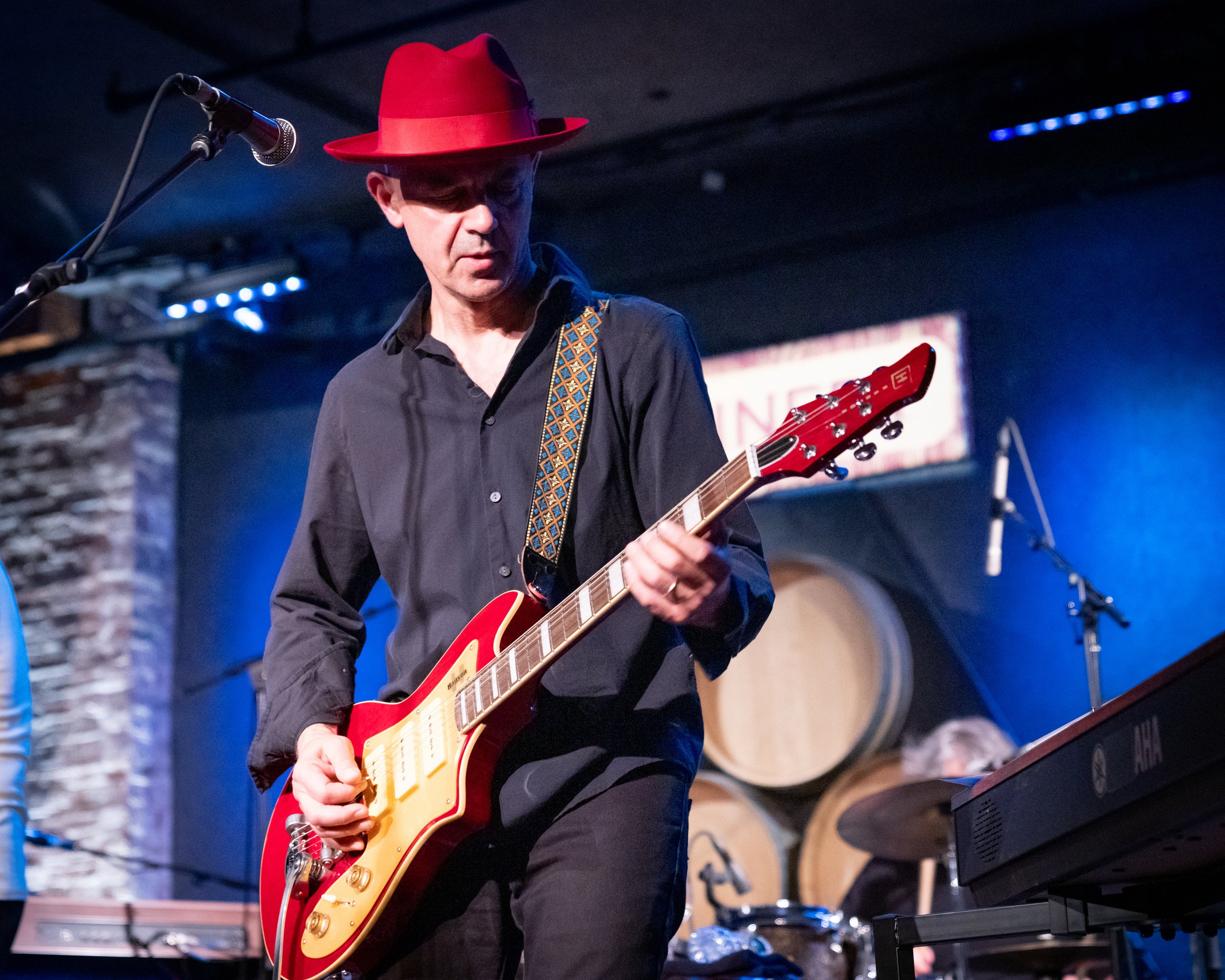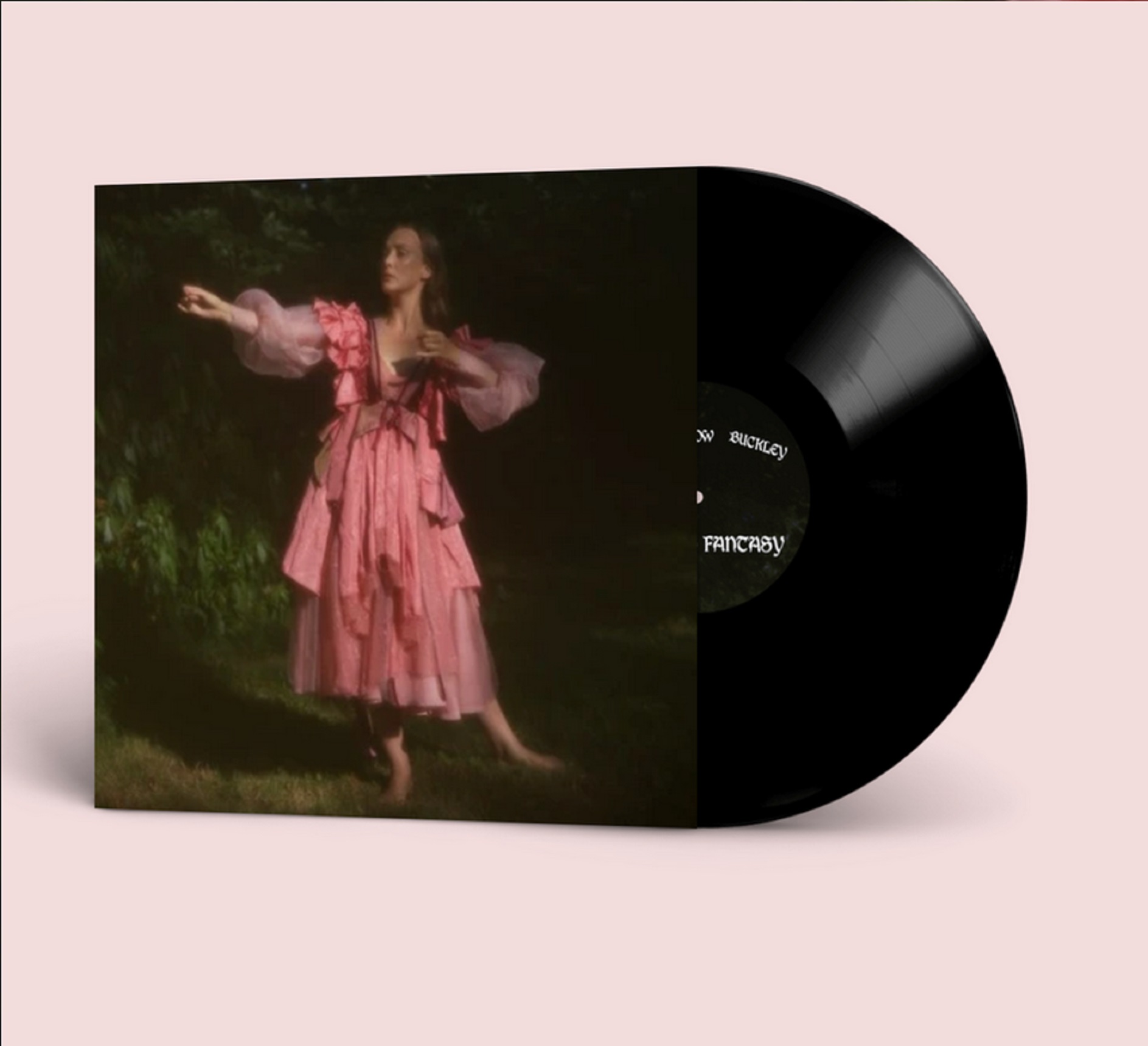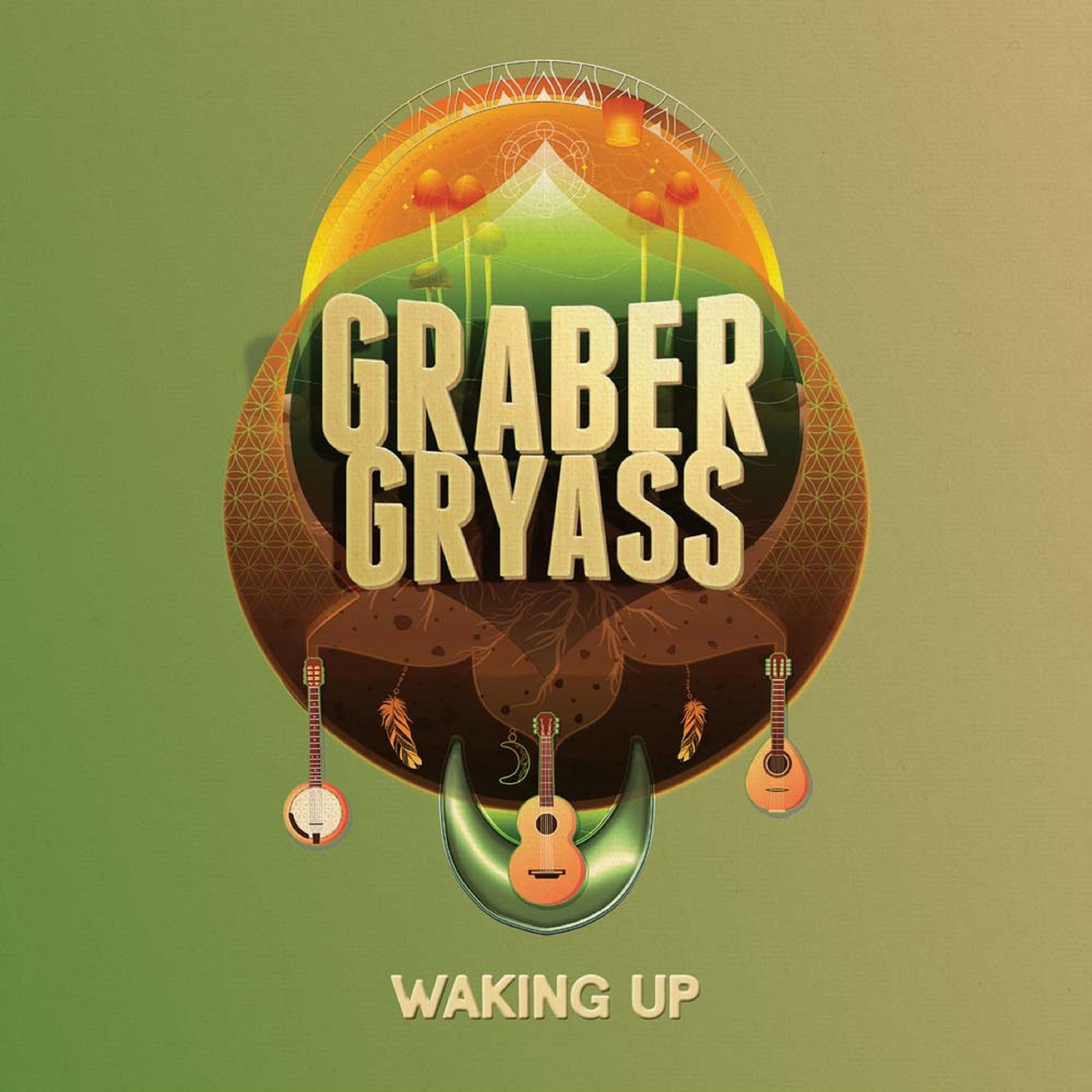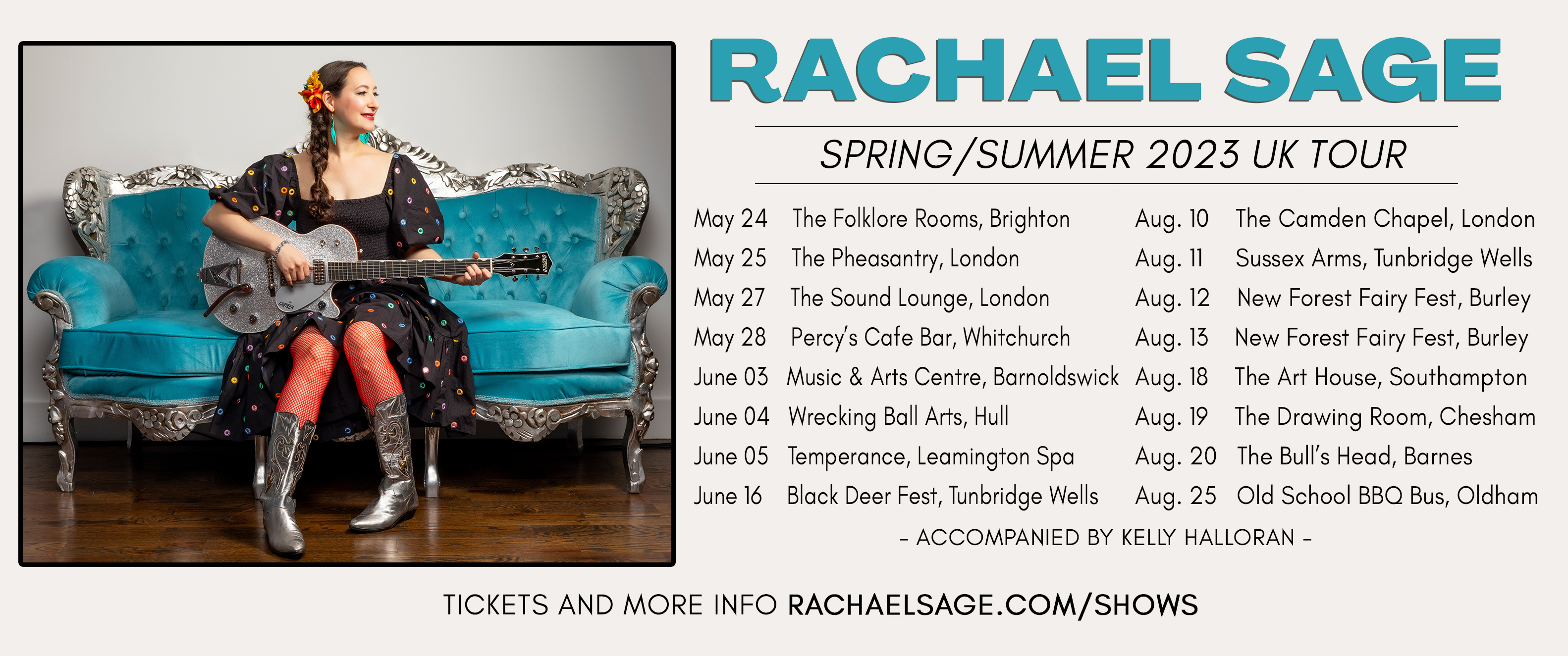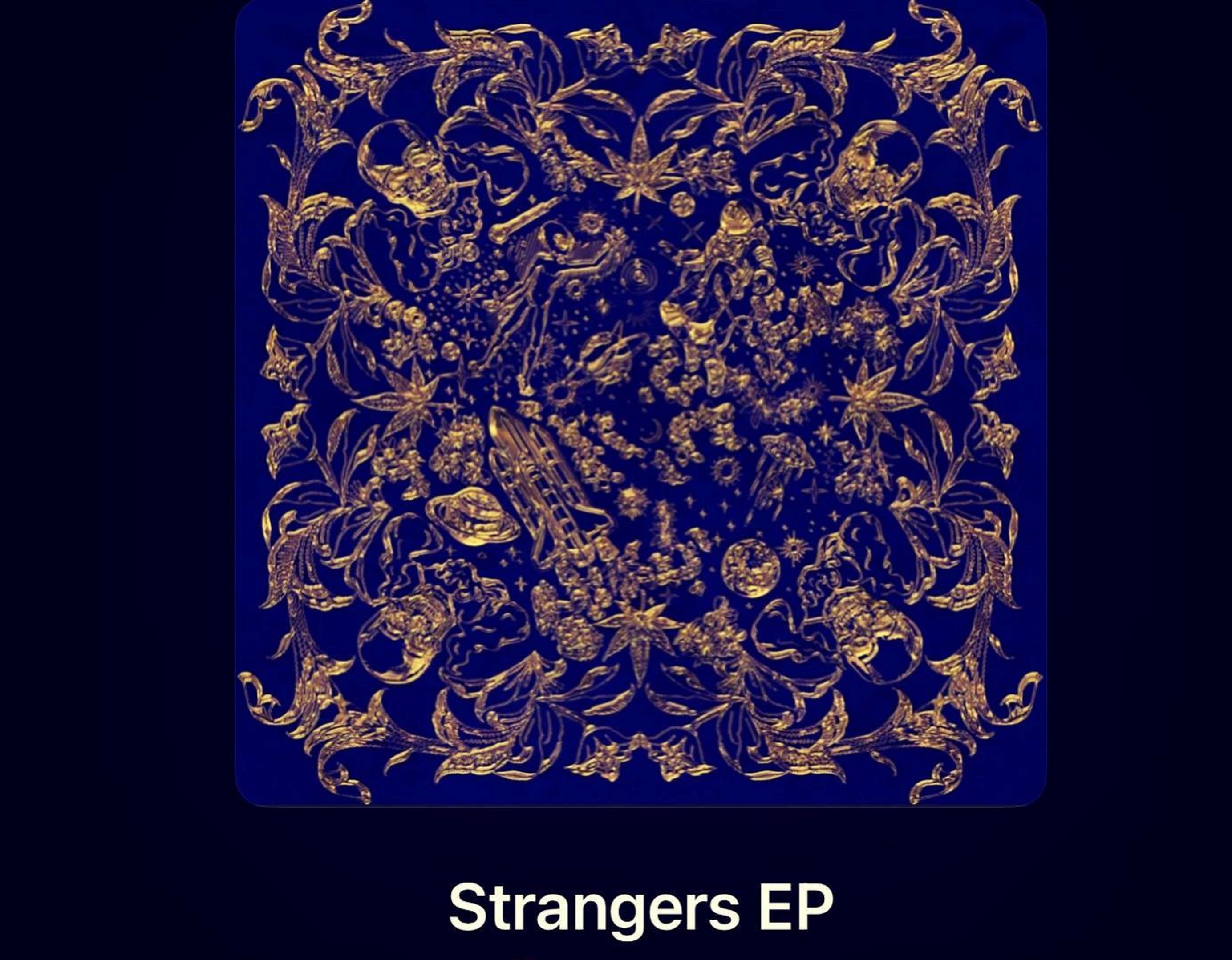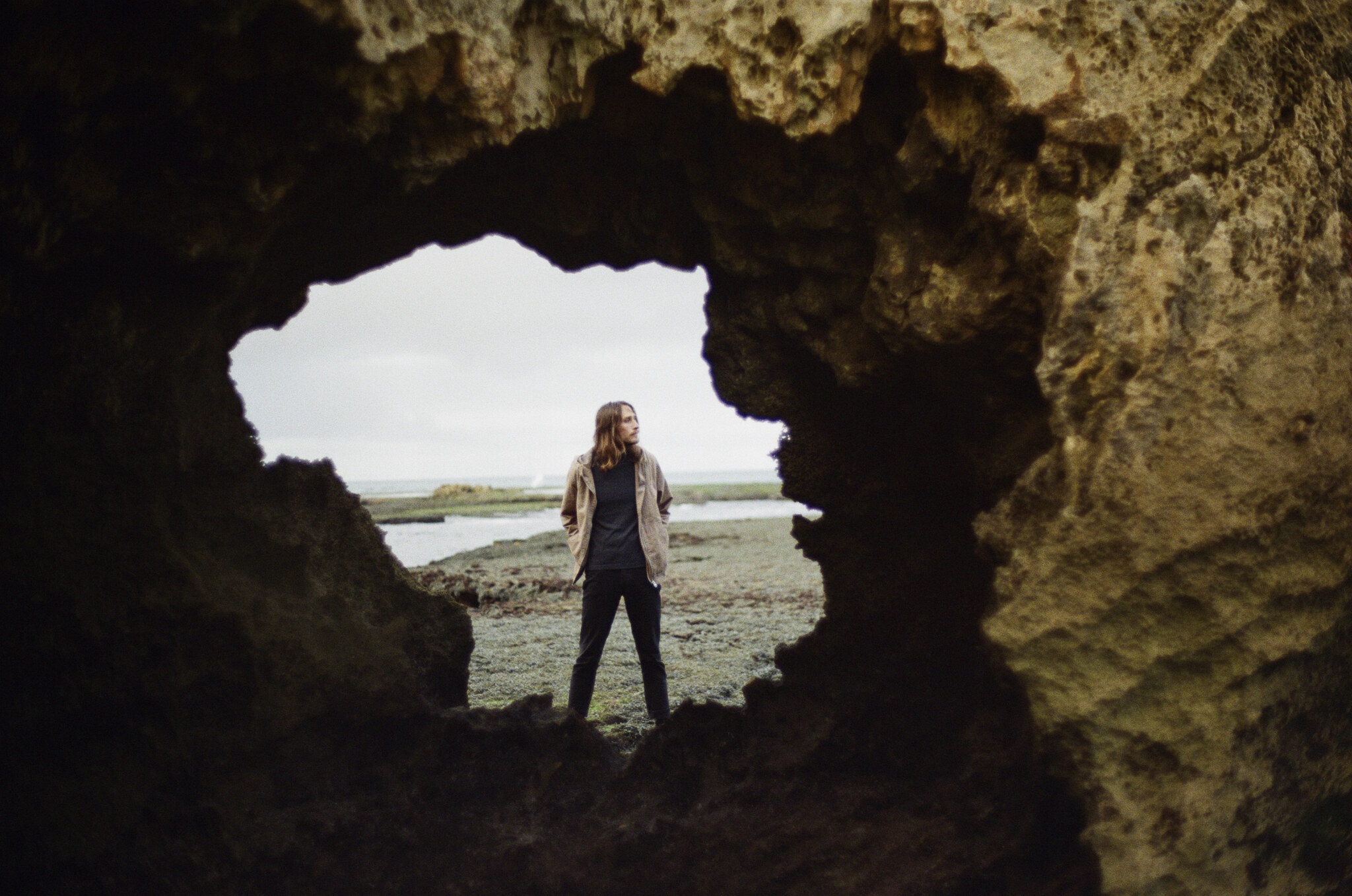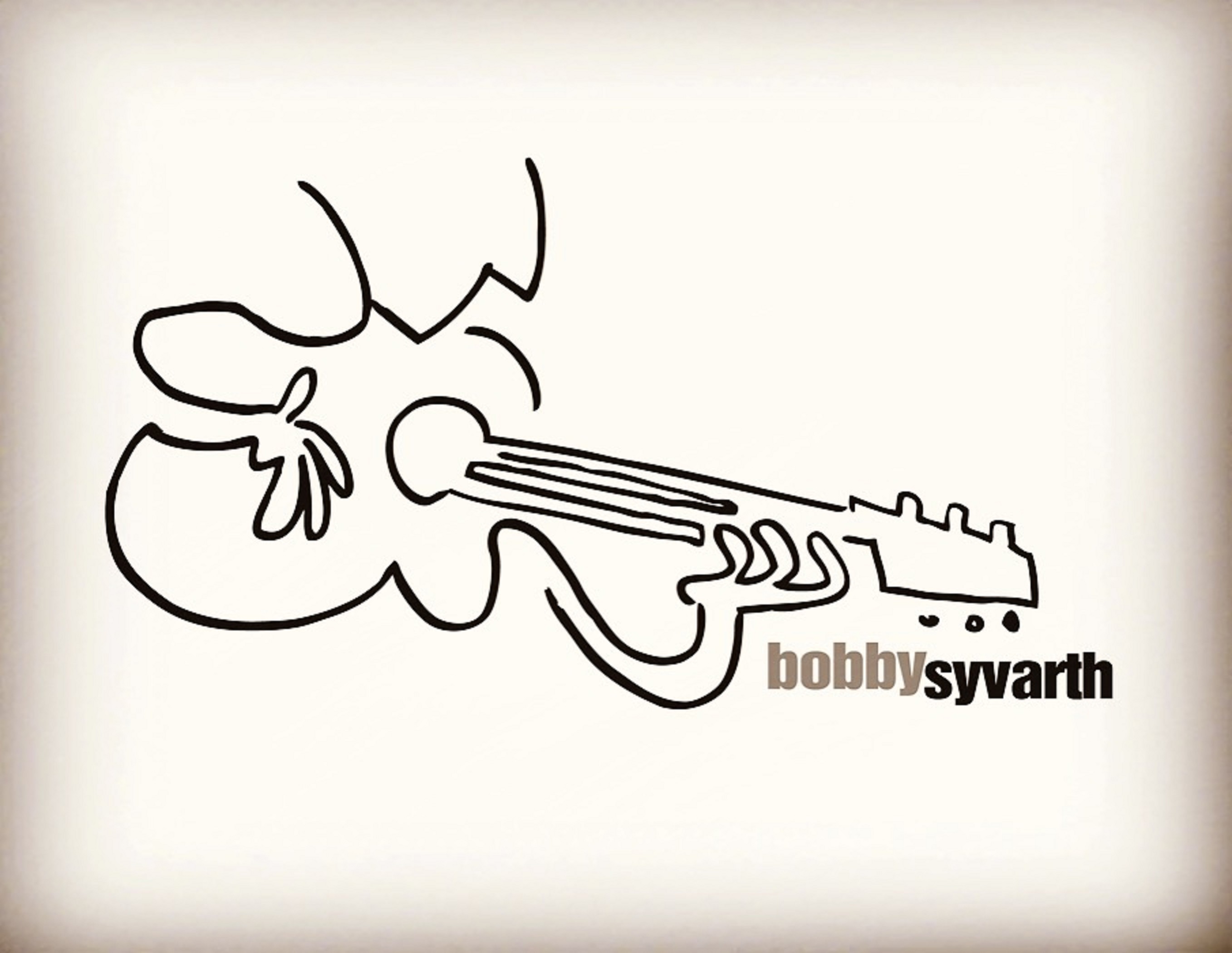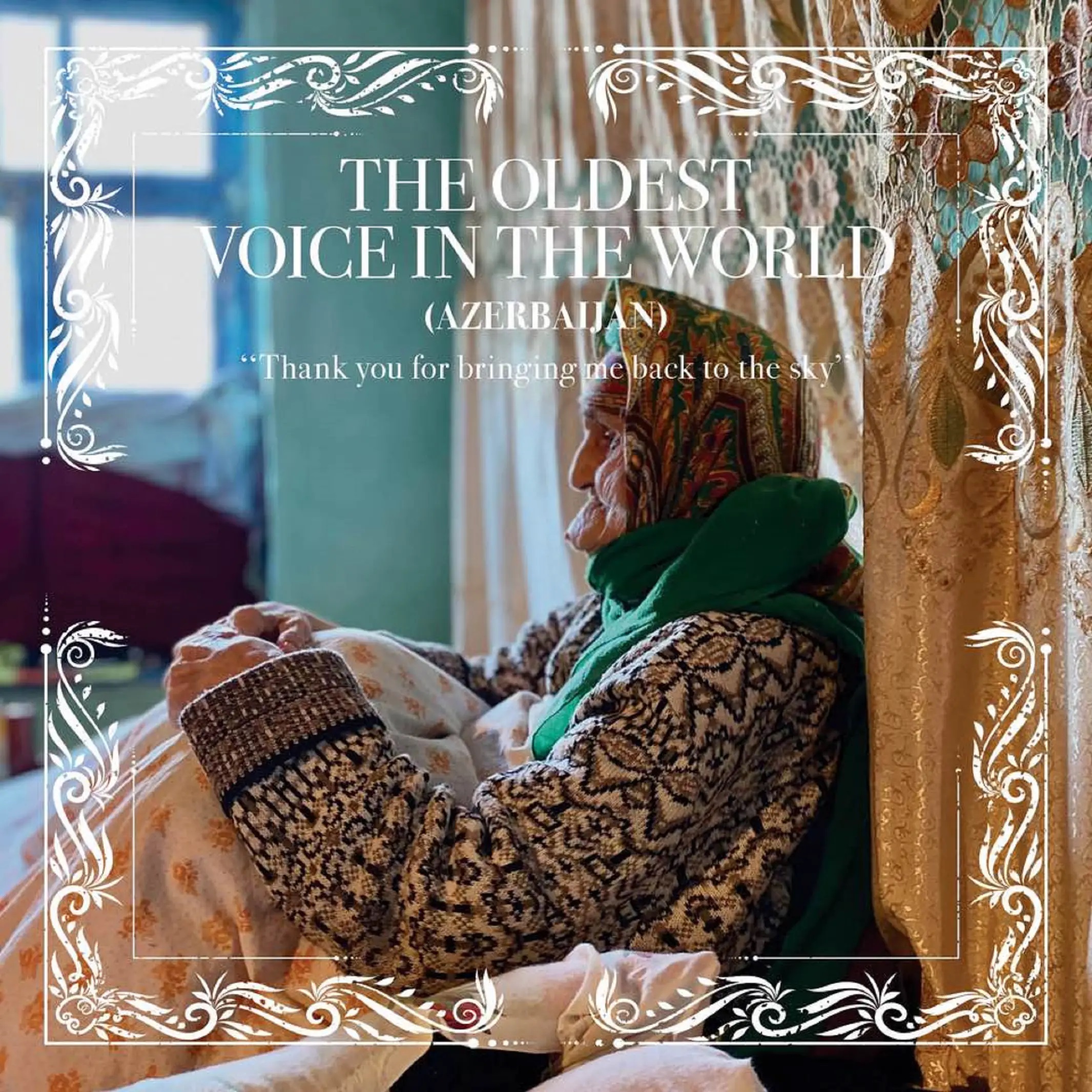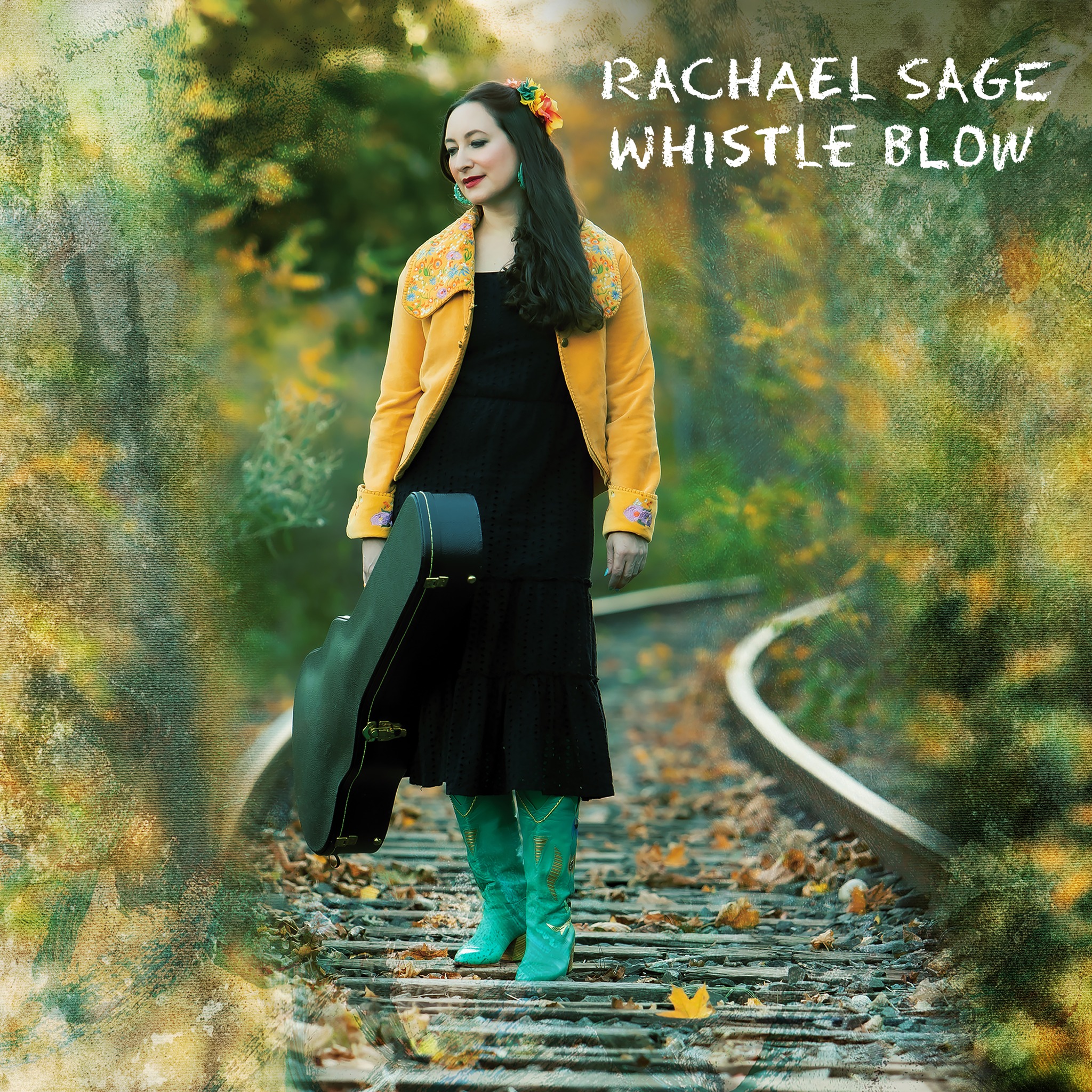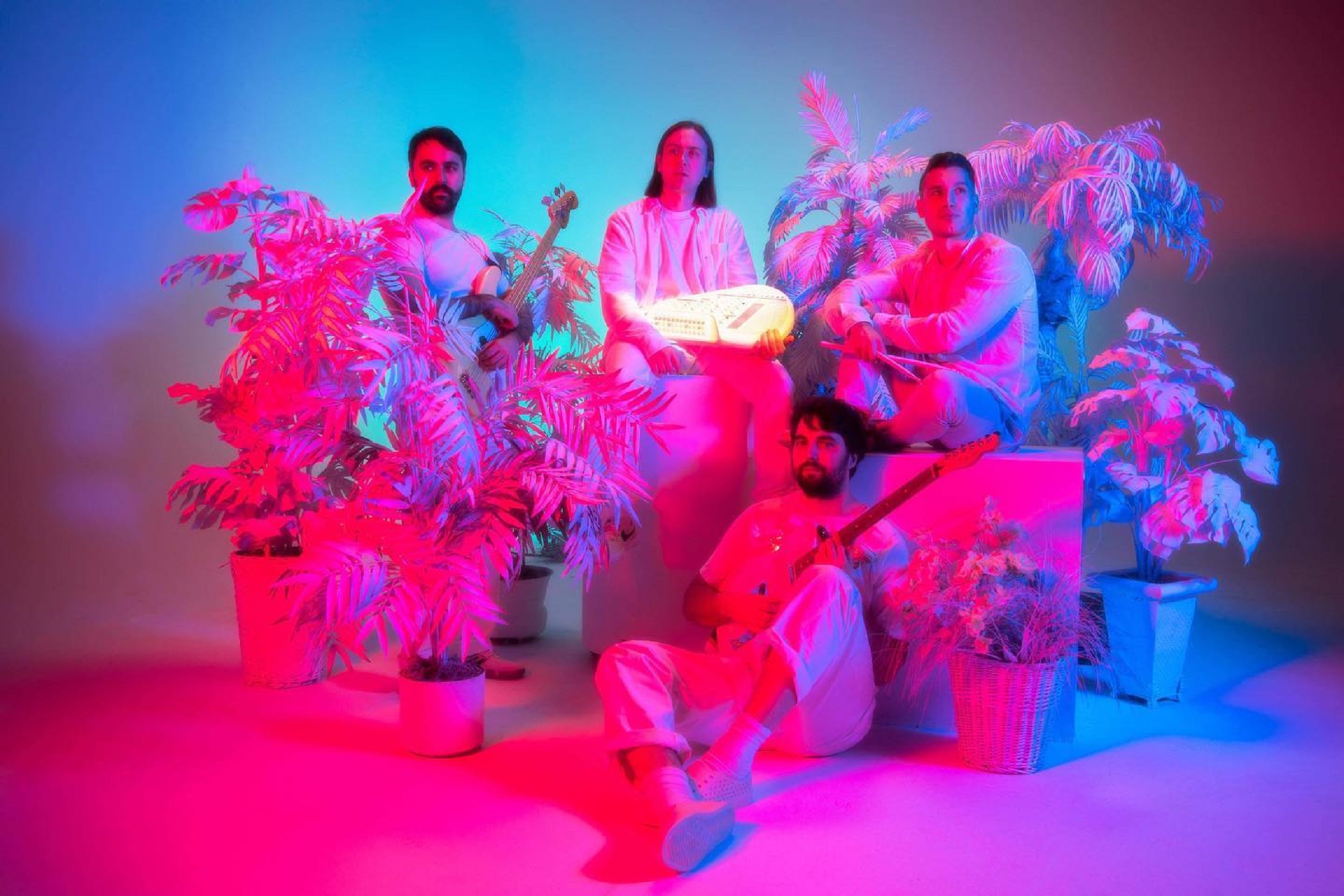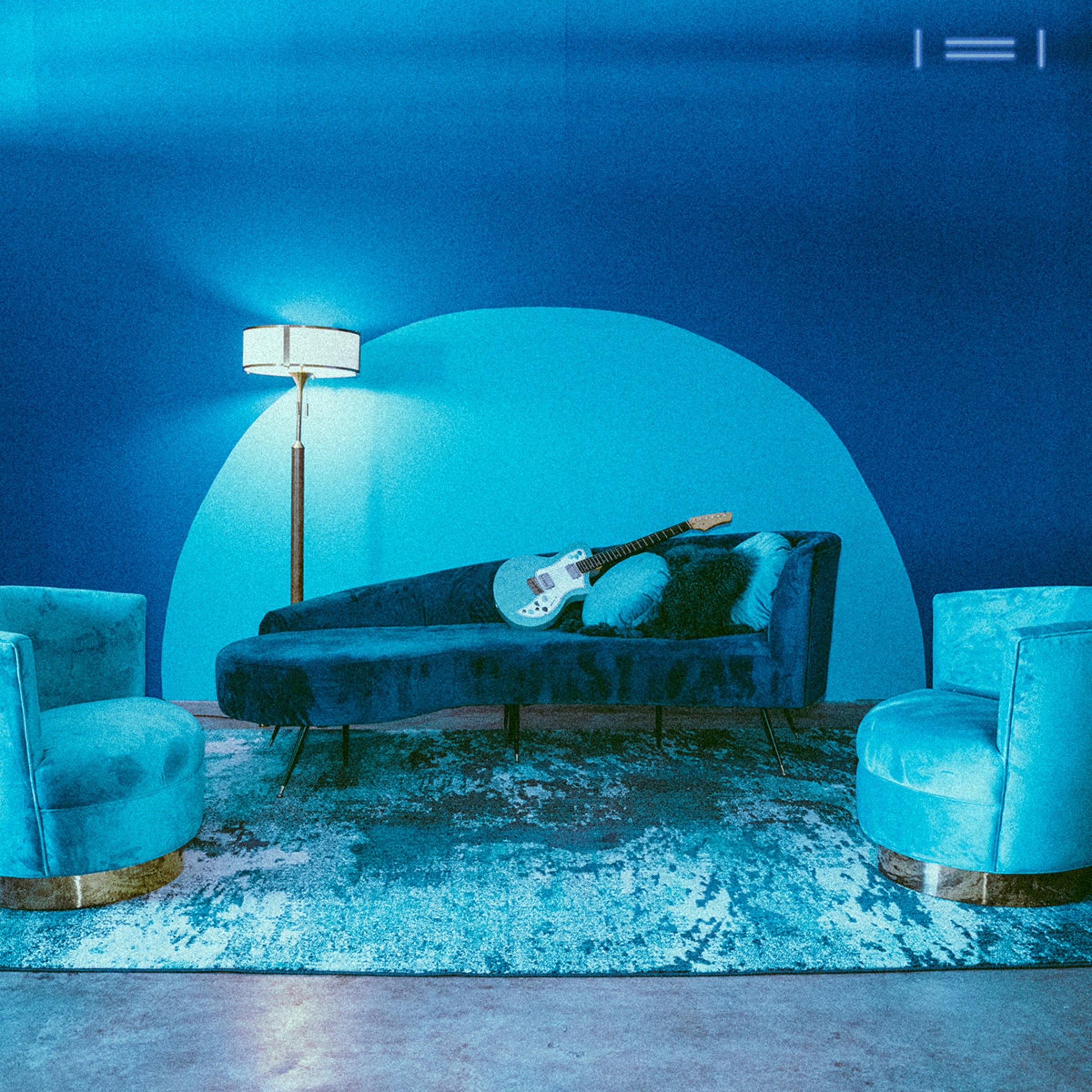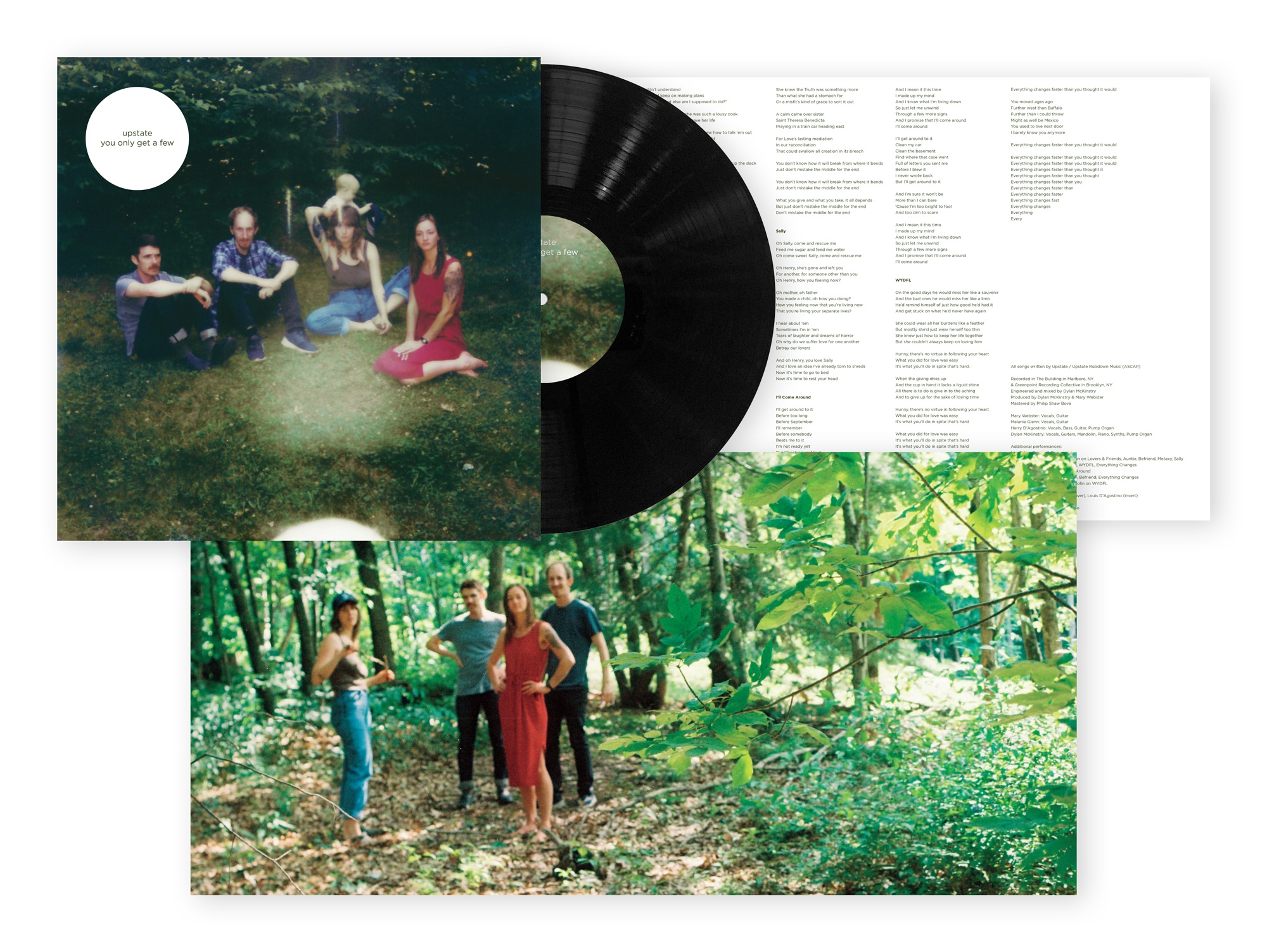To those who know Dave Brandwein as the front man of Turkuaz, the Indie-Americana/folk-rock music of Band for Sale might seem like a radical change. But to the multi-instrumentalist and producer, the upcoming album, Sleeping Sun, Waking Moon, represents a return to his musical roots.
Recorded on and off over the past decade, Sleeping Sun, Waking Moon is indeed a revelatory and deeply personal record for Brandwein, who produced and mixed the entire album himself. Blending British Invasion charm with classic rock grit and folk intimacy, it’s a timeless, breezy collection, one that manages to feel both deliberate and spontaneous, polished and raw, modern and retro all at once.
Read on to enjoy this exclusive interview with Dave Brandwein of Band for Sale as we discuss memories with Turkuaz, and the inspiration for Sleeping Sun, Waking Moon, which will debut on December 9, 2022.
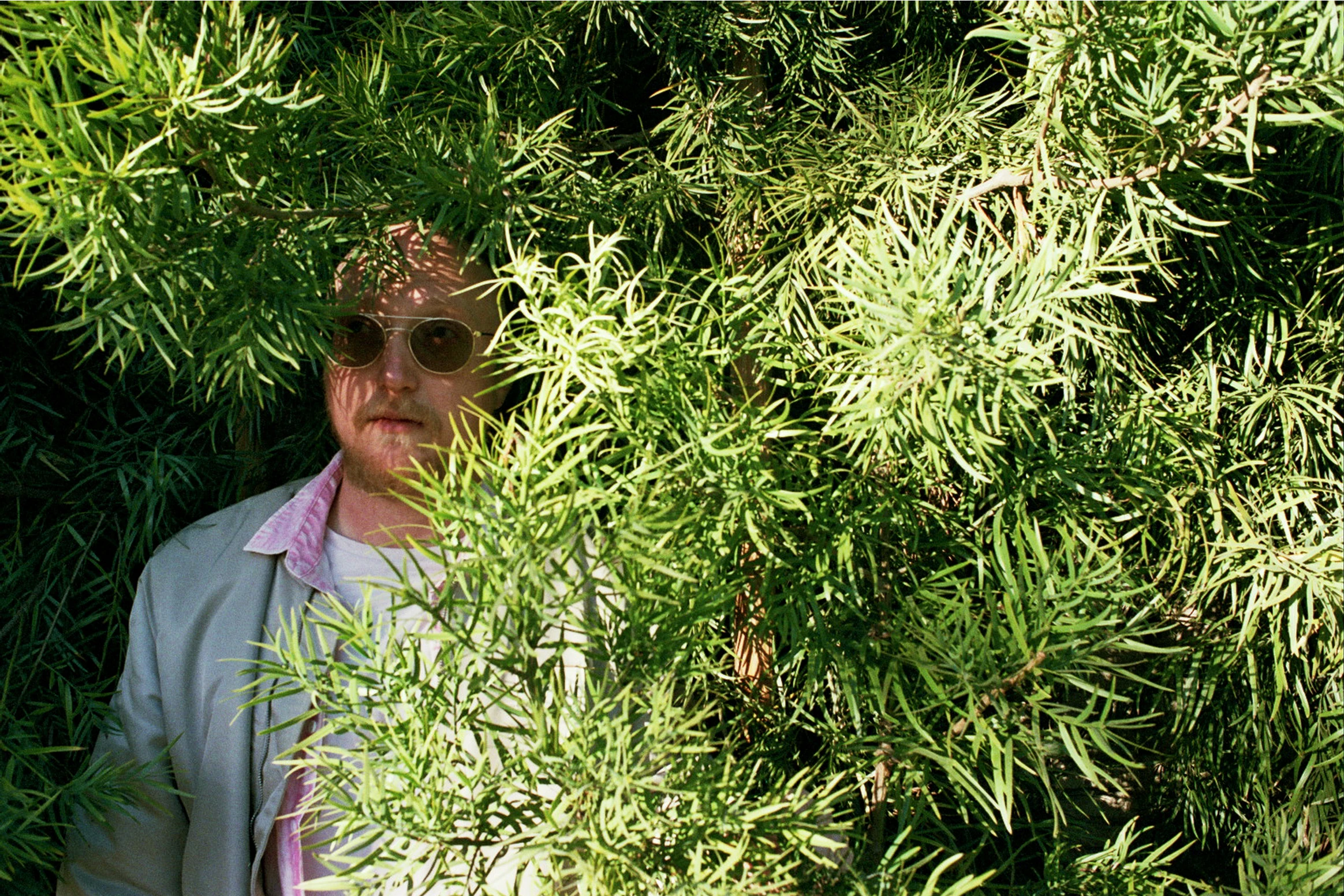
GW: So how was the move from New York City to LA? How are you liking LA?
DB: “It was good. It was time for a little bit of a change. I love New York. I grew up in Long Island, and then after going to Berklee in Boston, I moved right back to Brooklyn. The whole band at the time did. I’ll always have a part of me that's a New Yorker, but after 13 years, and then with the last two years being during the pandemic, and with me undergoing a lot of personal changes at the same time, it felt like as good a time as any. And the sunshine and beach are pretty cool. I underestimated how much that would change my mood. In general, it's been really good in terms of having a reinvention period, and looking to the future. I feel like the atmosphere sort of matches that for me.”
GW: Perfect. A new chapter. So, I've been listening to your solo album, Sleeping Sun Waking Moon today, and I think it might be one of my new favorites. I really really like it. Can you tell me the details about the album, and then we can talk about your inspiration?
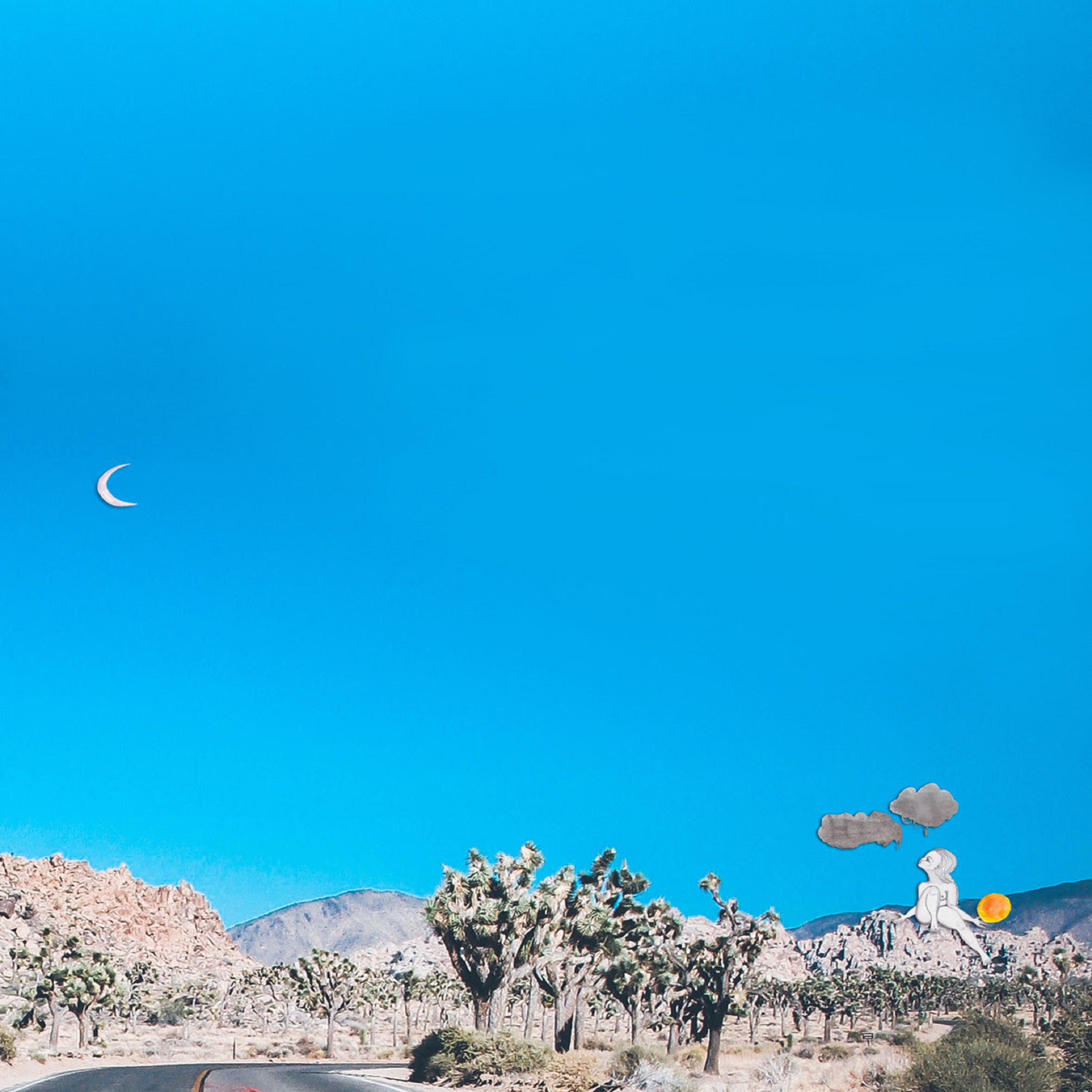
DB: “Yeah. It comes out on December 9th, but I've been working on it for a really long time. I toured with my band Turkuaz for 150-200 days a year for the last ten years, and I always had these pieces of songs that I’d written. I’d start to record, and then I’d occasionally get motivation, and tell myself: this year I'm going to finish it, I'm going to do it. And I would chip away these tiny pieces. But until the pandemic hit, I didn't have the amount of time I needed in order to get it all done. And of course there are songs from as far back as ten or fifteen years that I've had forever. And then there’s new stuff from the last year or so, and everything in between. So it's a collection of my favorite things, or at least the ones I thought would fit together nicely from the last decade. It has been a long time coming, and obviously it's a pretty personal record for that reason. It is amazing how many things that I wrote ten years ago that can be equally relevant, or almost more relevant now. I tend to do that a lot with stuff that I write. I write pretty free flowing, or stream of consciousness, and then sometimes, years later, I'll look back at something I wrote and be like, oh, that's what that means. It’s kind of crazy that it almost seems to tell the future at times.”
GW: I get that. Everything that I've been doing, and the people that I have been surrounding myself with, and all of my experiences, have led me to this natural transition into the next stage of my life that I didn’t even know I was preparing for.
DB: “When we are open, and in a period of time in which we are willing to listen, we tap into a lot of things that are all connected. For me, when I isolate and when I am feeling more negative, I'm not there for those things, and they don't connect, and so things seem a lot more hopeless and meaningless. But I think what you're talking about, how that series of events led you to that, or I'll be tapped into something when I'm writing, and it will manifest itself years later... I think that there is, without going into any specific beliefs— and it's not a religious thing— I just think that there's some type of a sphere of awareness that we all have available to us if we listen. And so I am trying to do a lot more listening these days than I had done for a long time.”
GW: You're talking about this collective consciousness, and every artist that I interview, no matter what their age is, the genre or style of music they play, who their influences are, what part of the country they're from, there's like this universal experience that we all share. Even myself as a creative person. I just think that's the coolest thing. You talked about isolation earlier, and while I do enjoy my solitude, it can be too much sometimes. So talking to other artists and creative people reminds me that I'm not alone in these experiences, or the way that I view the world.
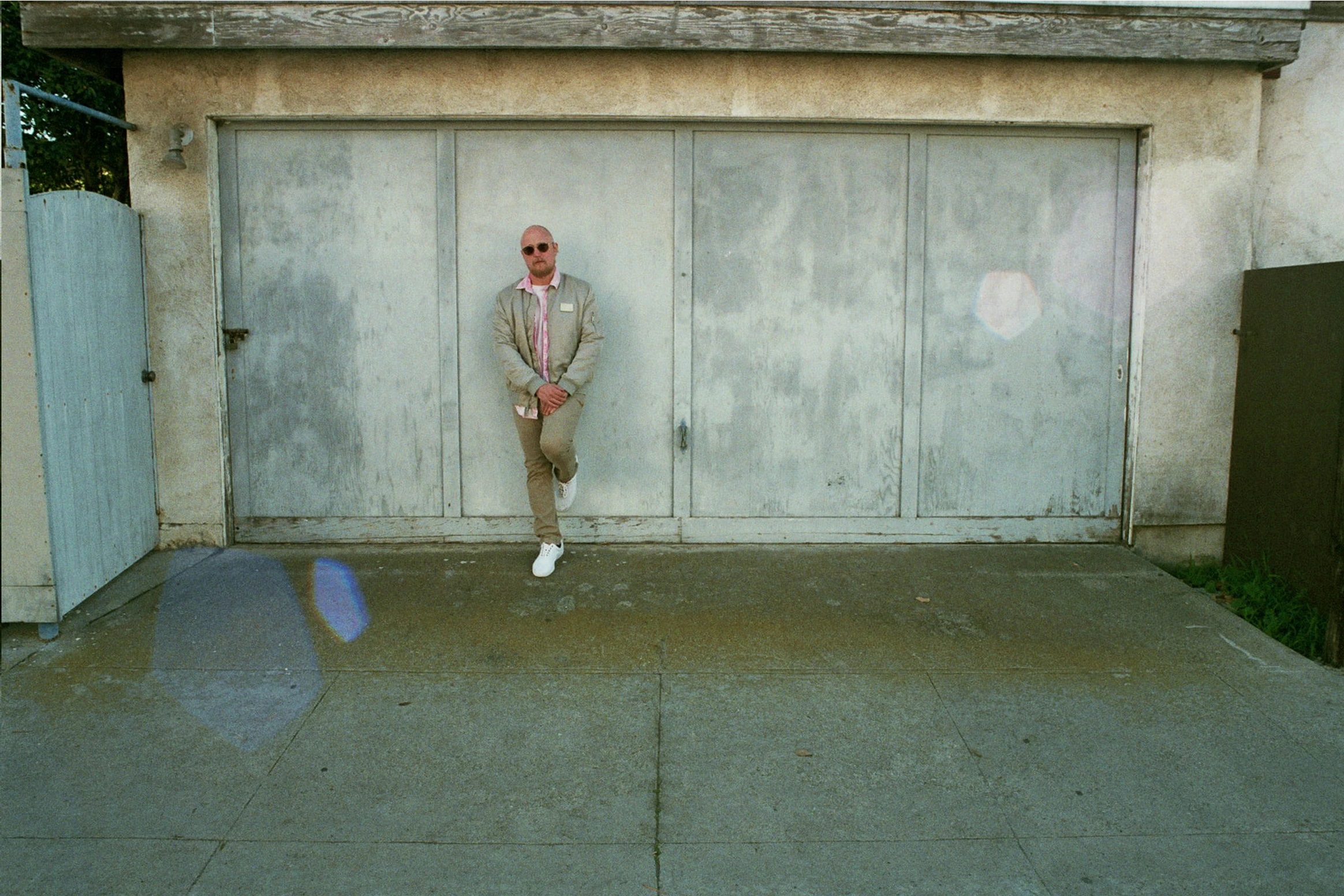
GW: I heard a little bit of The Beatles in a couple of the songs. Are you influenced by them?
DB: “Yeah, I mean sometimes I wonder if it’s too much of an influence, but it was my blueprint for all music. I learned how to play guitar by learning from The Beatles. I just learned the entire songbook. Every single song. How to play and sing on guitar. I had a guitar teacher, but in terms of the craft of writing and understanding theory, I got to know it quickly that way. I became obsessed and bought every album. I had three or four solid years that it was just an absolute obsession. And then my consciousness or awareness of other music opened up a little bit, but The Beatles will always remain the backbone for me. So yes, you're definitely correct to hear some Beatles influence in there. And if that shines through, then that's a good thing.”
GW: I love the instrumental intro too. I feel like it really set the tone for the whole album.
DB: “Yeah. It was a risky thing, because people will often put something on and if a vocal doesn't come in within five or ten seconds, or something that hooks them doesn't come in, then it's on to the next thing. But it just had to be the intro. It felt like the intro. I was like, well, let’s really sift out who's ready for this record and who’s not.”
GW: As somebody who has centered my life around words, I appreciate instrumental music a lot. It gets me out of my head.
DB: “Yeah, thank you. Every few songs I tried to put in a little instrumental break.”
GW: Yeah, I love it. So you talked a little bit about this, but I am wondering how this album reflects you as an artist or person, and what makes you most proud about this. You already had a very successful music career with Turkuaz, so what sets this one apart?
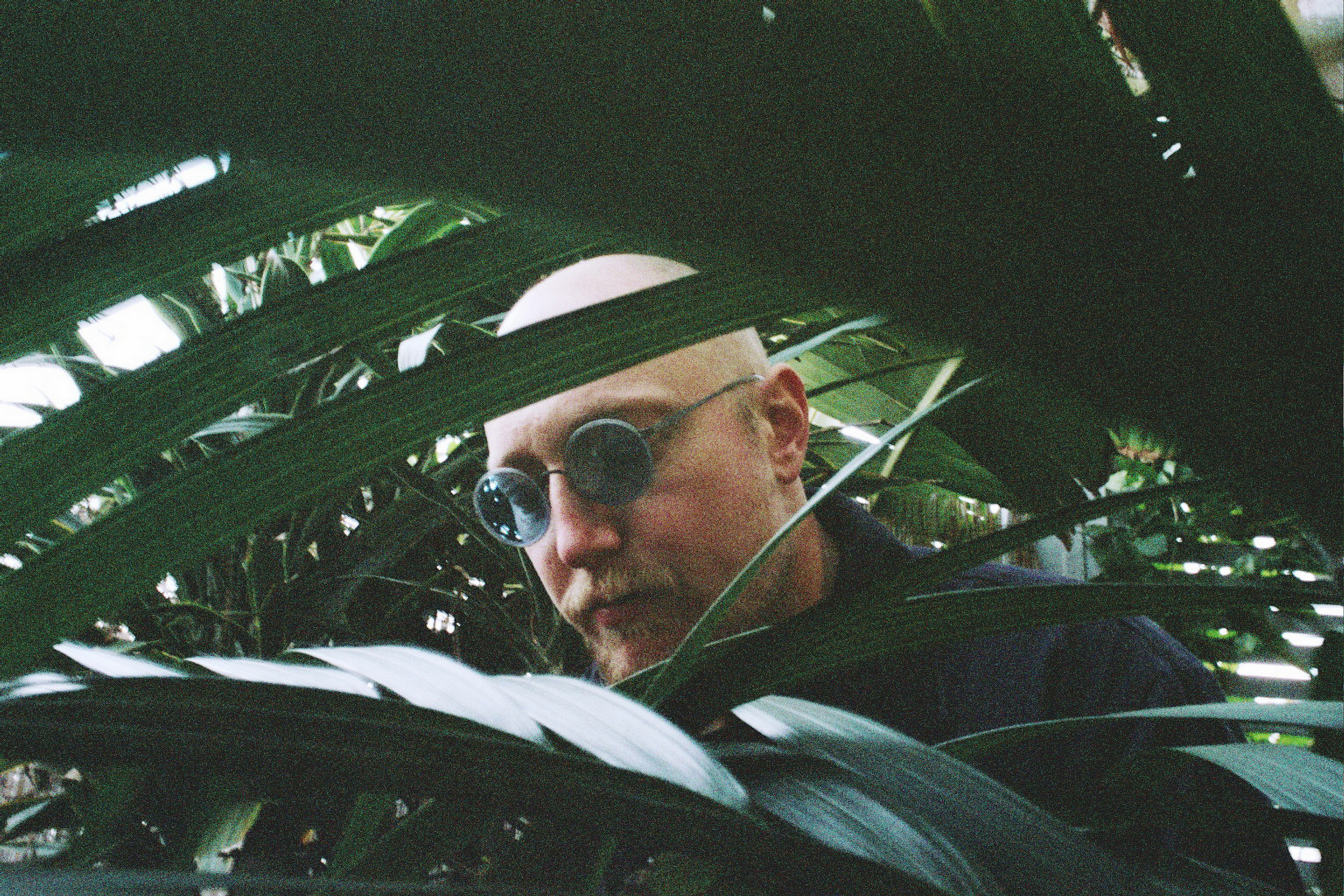
DB: “I guess first and foremost is that although there are other really great musicians on this record, it is very much a solo record, which makes it really rewarding, but also has presented some challenges. I am the only person who can push it along. There is no motivation coming from anywhere else to get it done. Other people played and performed really well on it, but it wasn't their project. So that’s pretty notable. When I'm coming from a band of nine people, and traveling with fourteen people on the road for many years, having a project that's just mine, and being able to sit, and make decisions for myself entirely, there's obviously something nice about that. No power struggle or anything like that. Just getting it out. Just myself. I can be a pretty formidable opponent to myself at times, so it’s not without its challenges, but I do feel like this represents more of where I come from as a musician, and the fact that I played most of the instruments, wrote all of it, and mixed it myself, I feel proud of that. It is very personal for that reason.”
GW: What is it that they say about groups of two or more? There's always going to be some kind of power struggle. It sounds like you faced some of that in your former group, Turkuaz. Do you want to talk about that at all?
DB: “You know; we took it to the extreme. I think we were told that all along, and I was told that as a band leader. They would say, ‘Oh, that's never going to work. That is too many people.’ And in the early days, I think everybody was just so gung-ho. We were in our twenties, and we didn’t mind not getting paid and crashing on floors. It’s really when we got to that intermediate level, where we weren’t superstars or pop stars, but we weren’t at the bottom. We were somewhere in the middle. We all deserved to be paid. We had paid our dues, but we weren’t selling out arenas or stadiums, so there just wasn’t enough to go around. And then you add a pandemic on top of it, and that was really the kiss of death. I also think that I shouldn't put it in such a negative way. Even though there were bad things about how it ended, I think it had run its natural course. Creatively, I felt a little maxed out on what we could do with it, and I think other people probably felt the same. So between money, and each person having their own creative vision for themselves, I think it was just time. I actually give people a lot of credit for how much they deferred to me for all those years, and that they had faith that it was always going in the right direction, that it was always going up. But once that pandemic hit, for an operation that size, it just became a lot tenser than ever before. I'm a happier person now that I’m focusing on these new projects. I'm still really proud of the work that we did as Turkuaz, and especially on the albums. I was given a lot of control with that, but I am super proud of not only what I did on the records, but obviously what we all did, and with our great performances.”
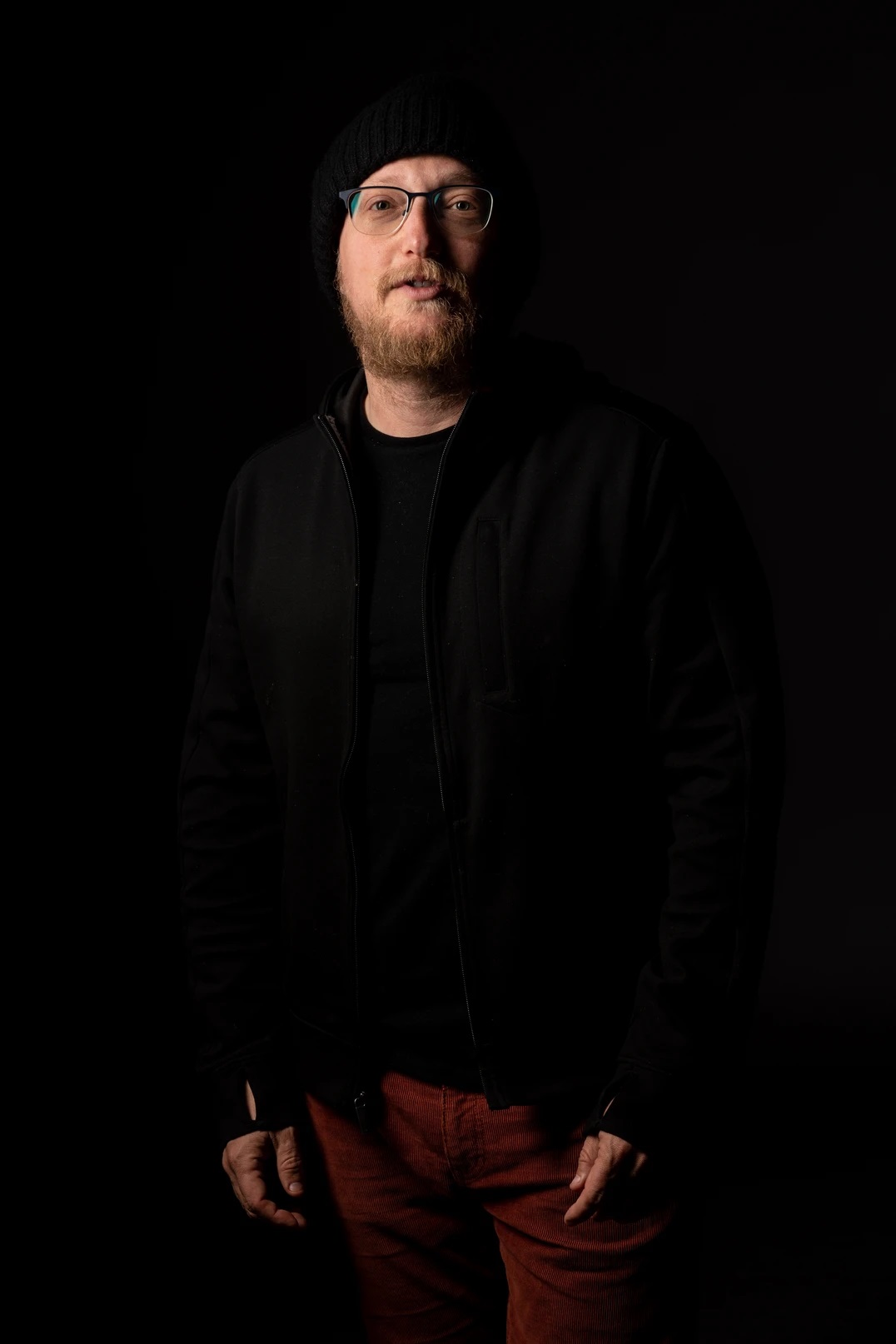
GW: I never had a chance to see you guys, but I heard that it was a fantastic show.
DB: “It is safe to say that we definitely turned it all the way up for every performance, so that was what we were known for.”
GW: Nice. Well, I can definitely see how it would be hard to keep a group of nine paid, especially through the pandemic. I don't know if you would agree with this, but I do think that the pandemic forced people to get really creative, and some really cool things came out of that.
DB: “Yeah, definitely. I always worked with people remotely on recording, but it certainly became more of the norm during that time. Everyone who's a musician seems to have their home recording setup pretty dialed in now. So if I want to work with somebody across the country, I can think of almost anyone to play on a track, and I can count on the fact that they will be able to record it themselves at home, and send it. Don’t get me wrong, I much prefer to be in person when working with people on records, and I've been doing a lot more of that, but it is one of the upsides that everyone can do it at home now. And also, speaking of being in Los Angeles, between there and places like Nashville, there's no shortage of content, even throughout the pandemic. That's somewhere that music still has a very big place, and there's an unending appetite for it. Recording music and writing, whether for myself or for other projects, has been my passion since day one, so I'm excited to crank out a lot more of that being off the road for a while.”
GW: So if I'm hearing you correctly, you prefer the creative process, and putting it all together more than the actual performance aspect?

DB: “I guess yeah, but the touring part is really what's hard. I certainly miss the feeling of performing, and I really value what we are able to give to fans. The connection with fans when we perform means a lot to me, and that's what I was most upset about when a bunch of our dates got canceled, and we stopped. That was my biggest concern. I'm happy to not have to tour anymore, but I'm not happy to not be able to give that to people anymore. So I miss that, and I always want to find a way back to it. I just don't know that I need to be on a tour bus, or in a van or airplane 200 days a year to do it. I think I can find more reasonable methods. The music will have to find its way to people in a different way. I’m certainly not a social media or marketing whiz, and I'm not shy about that fact. I think this is going to be a learning process for me, like alright, I don't want to tour, so how do I get this music out to people? And I mean this is part of it. I appreciate you doing this because I think there's probably some Turkuaz fans who will hear this record and be like, ‘what the hell is this?’ (laughs). So this is just about getting it out there, and eventually I'll definitely want to do some shows for this, and for my other project, New Originals, which maybe we can chat about some other time.”
GW: I honestly think that people are going to love this album. Can you briefly explain the difference between the two projects, and who you are working with on each?
DB: My friend Jonathan Smith, and Andrew Burri, who used to be in a band called Lucius. Taylor Shell is on bass for two of the songs. He is my partner in Turkuaz, so we still work together on a lot of stuff. Tim Walsh engineered a lot of it, and also played drums. He used to be in a band called the Step Kids that was really amazing. Matt Musty, who is the drummer of Train. Kurtis Keber, who plays with Grace Potter and the Nocturnals. Kiyoshi Matsuyama (formerly) from London Souls. And then all of the horn and string players that I don't know as well. It was still a collaborative process, but very much me asking them to play on the record. And it's my composition, so it's really a solo project. New Originals is what I do with my production partner, Rob O. Block, who’s based in Nashville. I'm actually going tomorrow to Nashville to work on some stuff with him for the week, and he and I produced one of the last Turkuaz records together, Paradiso, as well as a couple of tracks off Life in the City, which was a few years ago. So he and I had been working together on Turkuaz stuff and New Originals feels like a natural progression for people following the line of the Turkuaz music, in terms of my composition contribution to it. New Originals is where that is continuing a little bit. It's not funk, but it's upbeat music with some electronic elements, so that one's a little heavier. Band for Sale is a little bit mellow, and this first album by Band for Sale, Sleeping Sun Waking Moon is definitely on the mellow side. I might have some more rock stuff coming up soon afterward, but I like that, it's a record you could put on and just relax.”
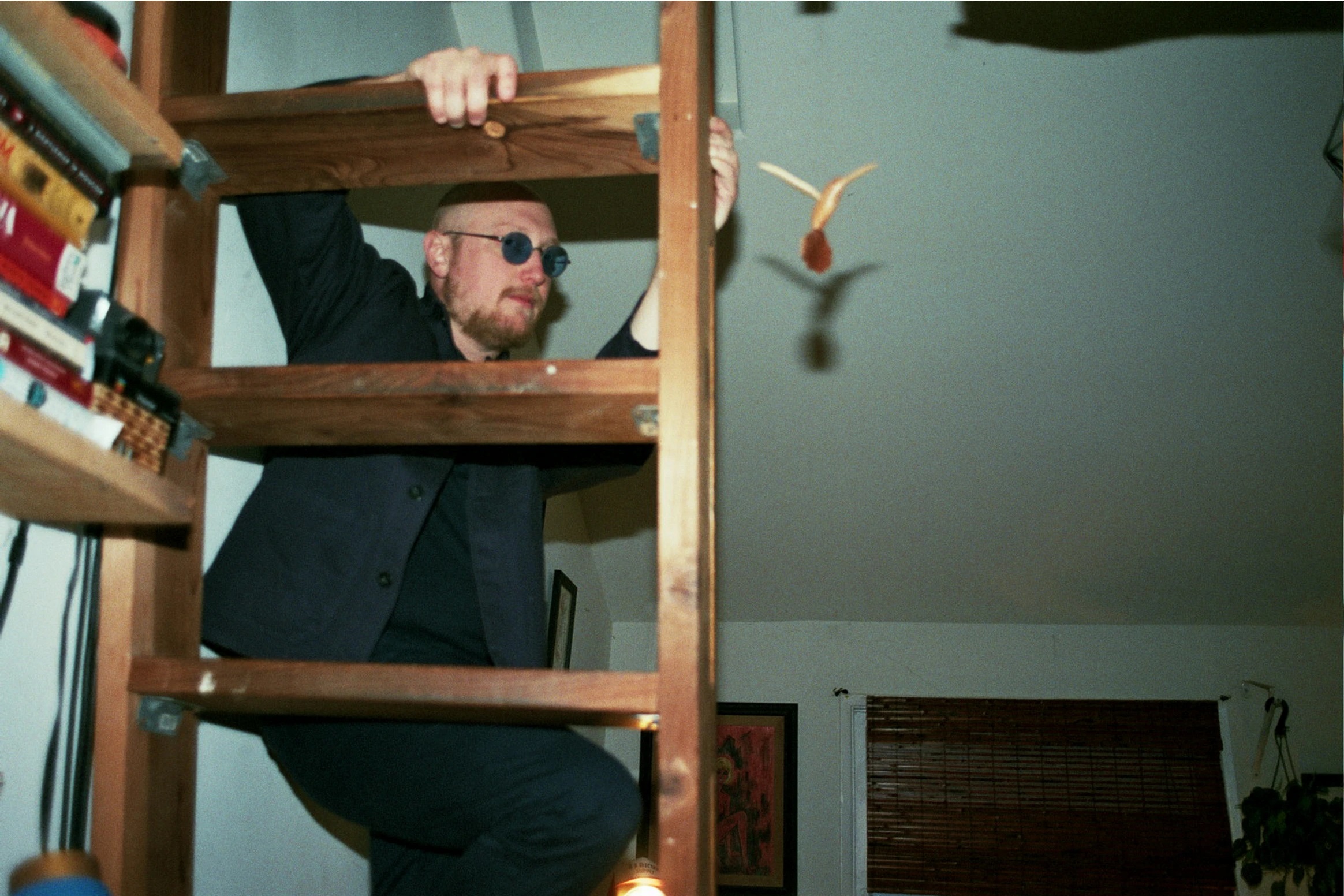
GW: That was a nice description. Thank you. So you and Taylor Shell started Turkuaz together when you were in college. How did that happen?
DB: “I'd say Taylor and I both come from families of extreme music appreciators. Taylor's sister is actually a great writer, but not professionally. He and I actually made a record for her that’s pretty awesome, and I can send that to you, but otherwise no one in our immediate family did music professionally, or anything like that. I think we grew up in environments that really appreciated music, and both of us were really big on The Beatles. I grew up playing more classic rock stuff, and Taylor did a lot of bay area punk kind of stuff when he was in his early teens, and then he got more into the jam thing before going to Berklee. I got into Steely Dan, semi-jazz inspired. So alternate versions, but similar trajectory. And then when we met, all we ever wanted to play was funk and dance music. We'd play at parties, and it was the most fun we'd ever had playing music. We, along with a bunch of other great musicians, some of which were not in Turkuaz, had so much fun playing. And we had all these other projects with people writing songs, and they were a little more straightforward. We didn't have a funk project with recorded songs, it was just like, oh, it’s fun that we jam at parties, or when we hang out we play, and that is fun, but we hadn't gotten to the point where we organized and made songs. It was like alright, why don't we try that? Why don't we try? Taylor would start making some grooves, and then I would add to them. I'd write vocals over them, and it all happened pretty quick. He’d make a good groove, give it to me, I'd write in thirty minutes, record the thing, and then we had our friends play on top of it. That was it. That was how it started. And then the label at Berklee wanted to sign us, but that was really just for their annual showcase event. We weren't a real band yet. We'd never played live. They heard these songs, and they wanted us to be on their compilation, and perform at the showcase. We accepted, and we threw our friends together, and played two songs at that showcase. That was the first time we ever played, and then we decided to keep going.”
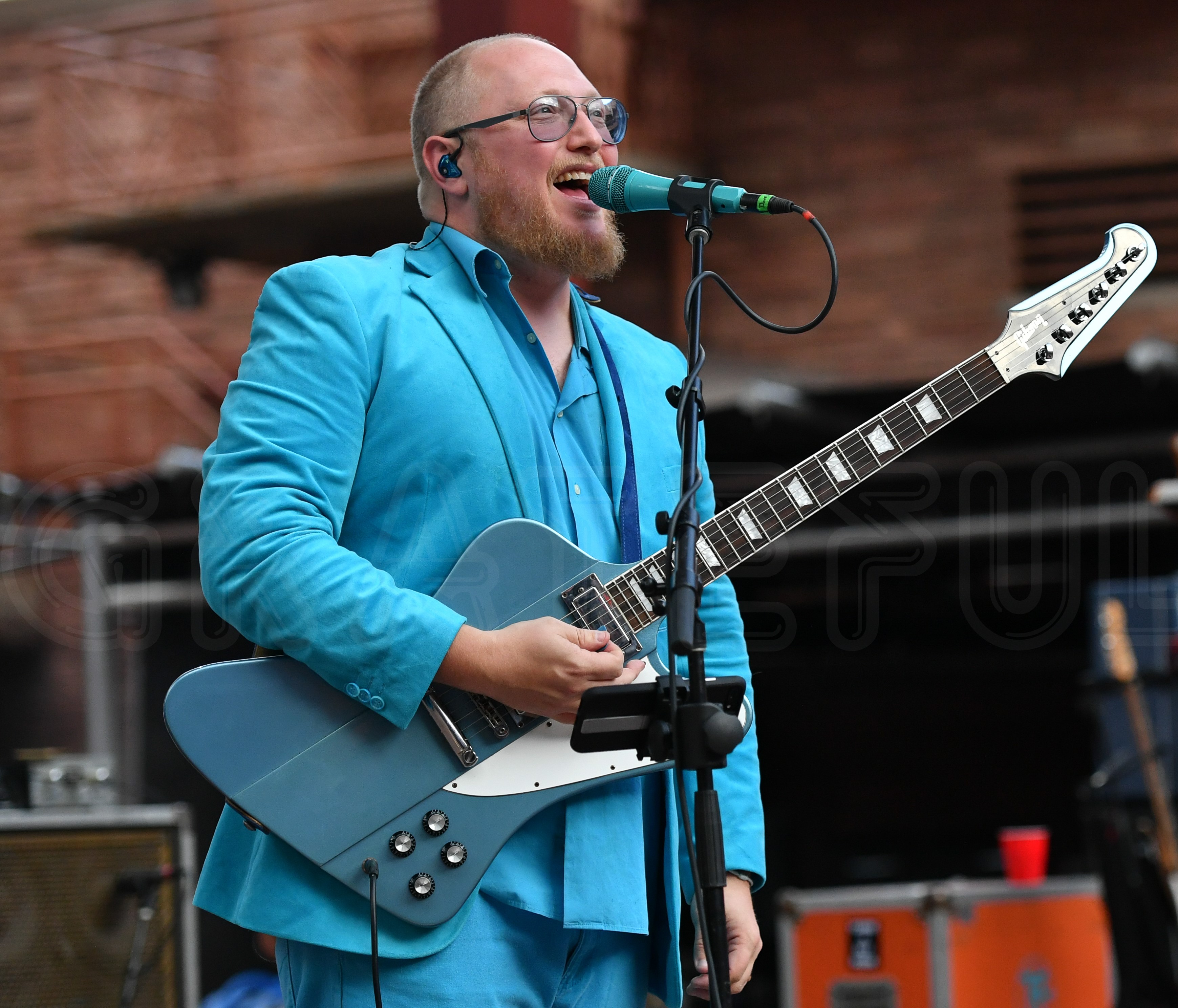
GW: I love that. So the friends that you threw in there, were they the other members of Turkuaz?
DB: “People trickled in over the following months. A year after that we had a couple of other drummers before Mikey. We had a guitarist before Craig. But by the time we started touring, our most recent line up had solidified around 2012. The last change was Shira joining in 2014. So you know it's funny, this is 2008 that I'm talking about. In some ways we didn't really consider it a real band until 2012 when we began touring, but there was this whole chapter before, which was so much fun. Those are some of my fondest memories. Not all of them, but definitely a lot of them.”
GW: I can imagine. Being in your early twenties playing at parties would probably be pretty fun.
DB: “Yeah and we’d do shows at some New York venues, maybe once a month, and that was it. We didn't really have any aspirations beyond that. We were like we're doing it. We made it.”
Sleeping Sun, Waking Moon track list:
“Morning, The Dead”
“Is There Anybody?”
“As Far As I Can See”
“Hit By The Nite”
“Prague”
“Fly Away”
“Joan”
“The Urge”
“Lilacs”
“Knight, The Living”
“Sleeping In Spain”
“What’s The Matter With You?”
“Love Going Crazy”
“Lookin’ High, Lookin’ Low”
“Apple Pickin’”





